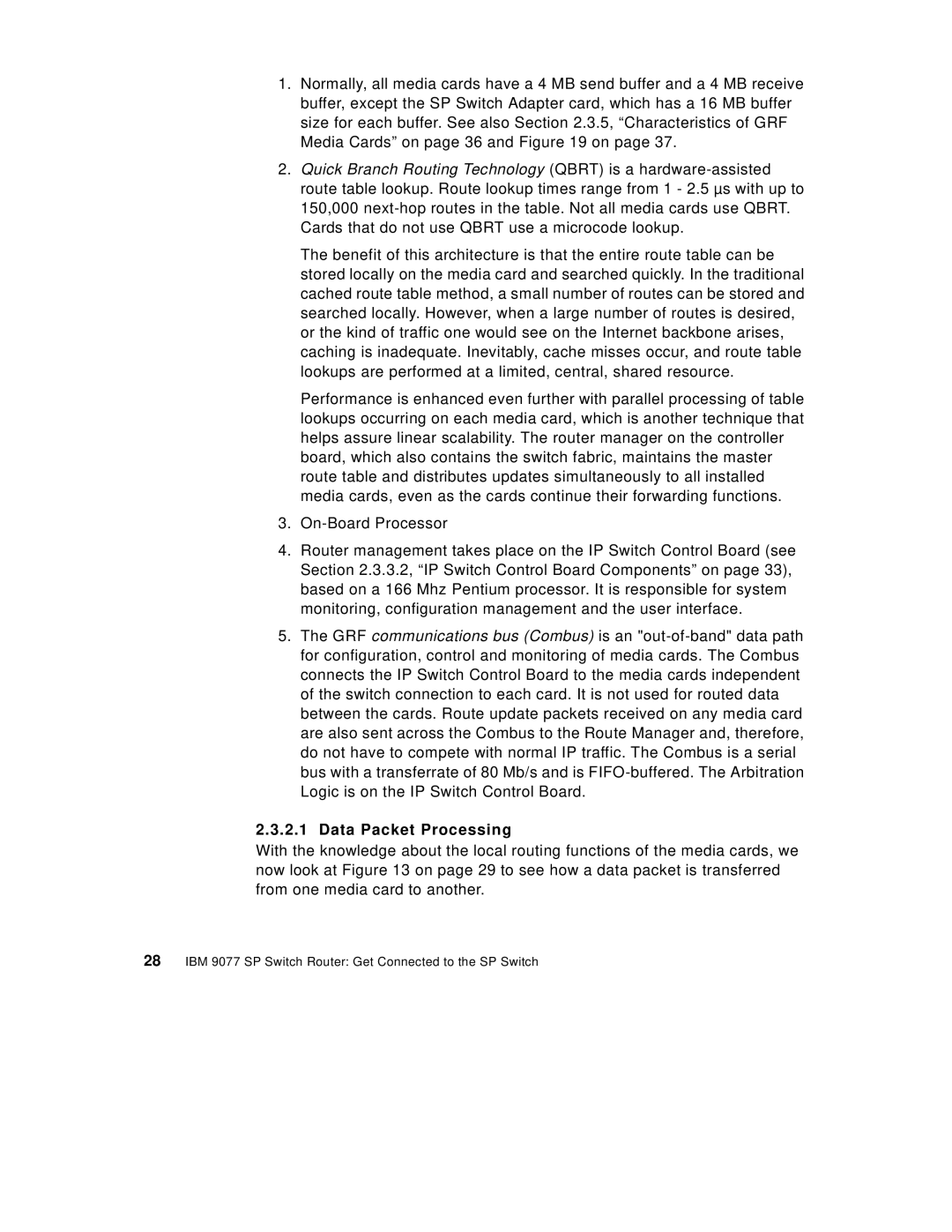1.Normally, all media cards have a 4 MB send buffer and a 4 MB receive buffer, except the SP Switch Adapter card, which has a 16 MB buffer size for each buffer. See also Section 2.3.5, “Characteristics of GRF Media Cards” on page 36 and Figure 19 on page 37.
2.Quick Branch Routing Technology (QBRT) is a
The benefit of this architecture is that the entire route table can be stored locally on the media card and searched quickly. In the traditional cached route table method, a small number of routes can be stored and searched locally. However, when a large number of routes is desired, or the kind of traffic one would see on the Internet backbone arises, caching is inadequate. Inevitably, cache misses occur, and route table lookups are performed at a limited, central, shared resource.
Performance is enhanced even further with parallel processing of table lookups occurring on each media card, which is another technique that helps assure linear scalability. The router manager on the controller board, which also contains the switch fabric, maintains the master route table and distributes updates simultaneously to all installed media cards, even as the cards continue their forwarding functions.
3.
4.Router management takes place on the IP Switch Control Board (see Section 2.3.3.2, “IP Switch Control Board Components” on page 33), based on a 166 Mhz Pentium processor. It is responsible for system monitoring, configuration management and the user interface.
5.The GRF communications bus (Combus) is an
2.3.2.1 Data Packet Processing
With the knowledge about the local routing functions of the media cards, we now look at Figure 13 on page 29 to see how a data packet is transferred from one media card to another.
